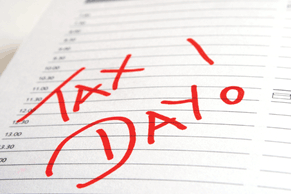Special reductions and late filing penalties
The First-tier Tribunal (FTT) has considered whether a taxpayer had a reasonable excuse for filing his tax returns late. While the issue was not unusual, the FTT’s ruling was. How might its decision help reduce a late filing penalty?

Tough late filing penalties
Several years ago HMRC vastly ramped up the penalties it can charge if a taxpayer submits a tax return late. Oliver Hampel (H) felt the full force of this when HMRC charged penalties for two late tax returns that equated to between a fifth and one third of his annual income.
The undisputed facts
When H’s business income fell sharply he decided to ditch his accountant and complete his personal returns himself. Unfortunately, his inexperience resulted in his 2015/16 and 2016/17 returns being submitted late and so HMRC demanded penalties. He appealed against them to the First-tier Tribunal (FTT) on the grounds that he had a reasonable excuse for the lateness. If the FTT agreed the penalties would be cancelled.
A reasonable excuse?
H’s first excuse was that he had trouble logging on to HMRC’s self-assessment system. Anyone who’s used HMRC’s self-assessment filing system will sympathise with H, as did the FTT. However, this did not relieve H of his responsibility. It was his fault that he left submitting his tax return to the eleventh hour when it was too late to get help. H’s alternative argument was that he was not sure where to report his income: on his personal tax return or that for his company. This is also a lame-duck argument for the same reason as H’s other excuse. He couldn’t shirk his responsibility to file a tax return simply because he didn’t understand the tax rules. The FTT could not accept either of H’s arguments as reasonable excuses and therefore the penalties had to stand.
Unreasonable penalties
That might have been the end of the matter for H but the FTT wasn’t done, and this time it was HMRC that came under fire. The FTT decided that the amount of penalties compared to H’s income meant that HMRC should have considered a “special reduction”.
The tax rules specifically allow for a special reduction of penalties in various circumstances
HMRC’s responsibility
HMRC failed to take account of H’s low income following his appeal against the penalties. The judge said that it is “clearly possible for a penalty imposed for failure to make a return to be disproportionate when compared to the taxpayer’s income” . Therefore, while the fixed penalties are usually justifiable the variable and daily penalties introduced more recently can soon add up to a sum which is unreasonably high and disproportionate; this was the position in H’s case. As a result, the FTT ruled that the penalties should be reduced to the fixed amounts, which in this case were £100 for the 2015/16 return and £400 for 2016/17.
Related Topics
-
Planning ahead for pension salary sacrifice changes
From 6 April 2029, both employers and employees will be required to pay Class 1 NI on pension contributions in excess of £2,000 made through a salary sacrifice arrangement. What can you do about it?
-
Marginal relief - responding to an HMRC nudge letter
HMRC is running a campaign to clamp down on incorrect claims for corporation tax marginal relief (MR). In what circumstances might you be challenged by HMRC and how should you respond?
-
Can you claim input tax on costs linked to electric cars?
Your business intends to go green and buy new electric cars. Can you claim input tax on the purchase of the vehicles and their subsequent fuel costs? Additionally, what recent change has been announced by HMRC?





 This website uses both its own and third-party cookies to analyze our services and navigation on our website in order to improve its contents (analytical purposes: measure visits and sources of web traffic). The legal basis is the consent of the user, except in the case of basic cookies, which are essential to navigate this website.
This website uses both its own and third-party cookies to analyze our services and navigation on our website in order to improve its contents (analytical purposes: measure visits and sources of web traffic). The legal basis is the consent of the user, except in the case of basic cookies, which are essential to navigate this website.